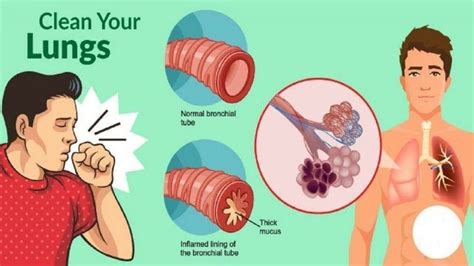How to Break Up Chest Congestion: Effective Home Remedies and When to See a Doctor
Chest congestion, that uncomfortable feeling of tightness and pressure in your chest, can be caused by various factors, from the common cold to allergies or even more serious conditions. While it's often not a cause for major alarm, knowing how to effectively break up chest congestion and when to seek professional medical attention is crucial for your well-being. This guide will explore home remedies and medical advice to help you breathe easier.
Understanding Chest Congestion
Before diving into solutions, it's vital to understand what chest congestion is. It's typically characterized by a build-up of mucus in your airways, leading to coughing, shortness of breath, and a feeling of pressure or tightness in your chest. This mucus can be thick and sticky, making it difficult to expel.
Causes of Chest Congestion:
- The Common Cold: Viral infections are a frequent culprit, leading to inflammation and mucus production.
- Flu (Influenza): Similar to the common cold, the flu can cause significant congestion.
- Bronchitis: This inflammation of the bronchial tubes can result in excessive mucus.
- Pneumonia: A more serious lung infection, pneumonia often presents with significant chest congestion.
- Allergies: Allergens like pollen or pet dander can trigger inflammation and mucus production.
- Asthma: This chronic respiratory condition can cause airway narrowing and mucus build-up.
- Sinusitis: Infection or inflammation of the sinuses can drain mucus into the chest, leading to congestion.
Effective Home Remedies for Chest Congestion
Many home remedies can help alleviate chest congestion symptoms. Remember, these are supportive measures and may not be suitable for everyone. Always consult a doctor if symptoms worsen or persist.
Hydration is Key:
Drink plenty of fluids: Water, herbal teas (like chamomile or ginger), and warm broths help thin the mucus, making it easier to cough up. Staying hydrated is arguably the most important step.
Humidify the Air:
Use a humidifier: A cool-mist humidifier adds moisture to the air, helping to loosen mucus. Keep it clean to prevent mold growth.
Steam Inhalation:
Inhale steam: Fill a bowl with hot water, drape a towel over your head, and gently inhale the steam for several minutes. Add essential oils like eucalyptus (known for its decongestant properties) for added benefit, but always use caution to avoid burns.
Elevate Your Head:
Sleep with extra pillows: Elevating your head can help drain mucus and improve breathing.
Over-the-Counter Medications:
Expectorants: These medications help loosen and thin mucus. Decongestants: These can help reduce swelling in the nasal passages and improve airflow (use cautiously, as they can have side effects). Cough suppressants: These can help reduce coughing, although it's generally advisable to let your body expel the mucus naturally. Always follow the recommended dosage and consult a pharmacist or doctor if you have any concerns.
When to See a Doctor
While many cases of chest congestion resolve on their own, it's crucial to seek medical attention if you experience:
- High fever (over 101°F or 38.3°C): This could indicate a more serious infection.
- Severe shortness of breath: Difficulty breathing requires immediate medical attention.
- Chest pain: Chest pain, especially if sharp or persistent, warrants a doctor's visit.
- Whistling or wheezing sounds when breathing: These could be signs of asthma or other respiratory conditions.
- Persistent congestion lasting more than 10 days: Prolonged congestion may indicate an underlying issue.
- Coughing up green or yellow mucus: This suggests a possible bacterial infection.
Conclusion: Breathing Easier
Dealing with chest congestion can be uncomfortable, but thankfully, many effective home remedies can provide relief. Remember to prioritize hydration, utilize humidifiers and steam inhalation, and elevate your head while resting. However, always be aware of the warning signs that necessitate a doctor's visit. Early diagnosis and treatment are key to ensuring a speedy recovery and preventing complications.
